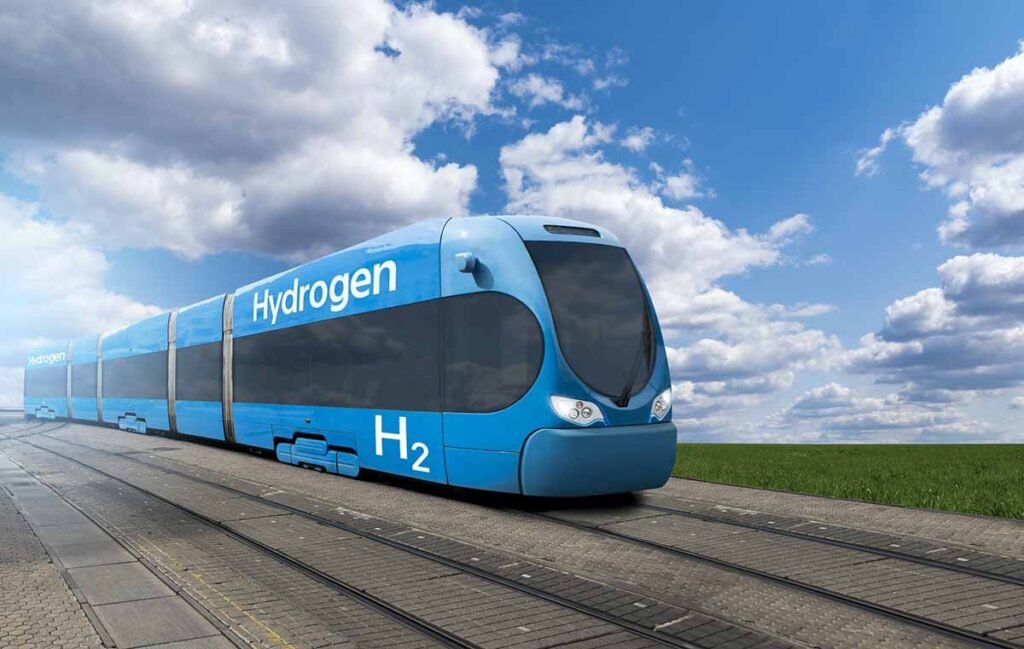
Introduction
Japan has made significant progress in mass producing hydrogen fuel trains.
The Advancements in Japan’s Hydrogen Fuel Train Technology
Japan’s Progress in Mass Producing Hydrogen Fuel Trains
In recent years, Japan has made significant advancements in the development and mass production of hydrogen fuel trains. This technology represents a major step forward in the country’s efforts to reduce carbon emissions and transition to a more sustainable transportation system. With its commitment to innovation and environmental sustainability, Japan has become a global leader in hydrogen fuel cell technology.
One of the key advancements in Japan’s hydrogen fuel train technology is the development of fuel cell systems that power these trains. These fuel cells use hydrogen as a fuel source and convert it into electricity through a chemical reaction with oxygen. This electricity is then used to power the train’s electric motors, providing a clean and efficient alternative to traditional diesel-powered trains.
The use of hydrogen fuel cells in trains offers several advantages over conventional diesel engines. Firstly, hydrogen fuel cells produce zero emissions, making them an environmentally friendly option. This is particularly important in densely populated areas where air pollution is a major concern. Additionally, hydrogen fuel cells are more energy-efficient than diesel engines, resulting in lower operating costs and reduced dependence on fossil fuels.
Japan’s commitment to hydrogen cell technology is evident in its efforts to mass-produce hydrogen trains. The country has invested heavily in research and development, collaborating with industry partners to improve the efficiency and reliability of these trains. As a result, Japan has successfully developed a prototype hydrogen train that has undergone extensive testing and is now ready for mass production.

The mass production of hydrogen trains in Japan is expected to have a significant impact on the country’s transportation sector. These trains offer a sustainable alternative to diesel-powered trains, reducing greenhouse gas emissions and improving air quality. Furthermore, the use of hydrogen cells in trains can help to diversify Japan’s energy sources, reducing its dependence on imported fossil fuels.
To support the mass production of hydrogen trains, Japan has also been investing in the development of hydrogen infrastructure. This includes the construction of hydrogen refueling stations along train routes, ensuring that these trains have access to a reliable and convenient fuel supply. Additionally, Japan has been working on improving the safety and storage of hydrogen, addressing concerns related to its flammability and transportation.
The advancements in Japan’s hydrogen fuel train technology have not gone unnoticed by other countries. Several countries, including Germany and the United Kingdom, have expressed interest in adopting this technology and have started their own research and development projects. Japan’s success in mass-producing hydrogen fuel serves as a model for other countries looking to transition to a more sustainable transportation system.
In conclusion, Japan’s progress in mass-producing hydrogen fuel trains represents a significant advancement in the country’s efforts to reduce carbon emissions and transition to a more sustainable transportation system. The development of fuel cell systems, the commitment to mass production, and the investment in hydrogen infrastructure have positioned Japan as a global leader in hydrogen fuel cell technology. As other countries look to adopt this technology, Japan’s success serves as an inspiration and a blueprint for a greener future.
Conclusion
In conclusion, Japan has made significant progress in mass producing hydrogen fuel trains. The country has successfully developed and tested hydrogen-powered trains, with several companies actively working on commercializing this technology. Japan’s commitment to reducing carbon emissions and promoting sustainable transportation has driven the advancements in hydrogen fuel trains, making it a promising alternative to traditional diesel-powered trains. With ongoing research and development, Japan is likely to continue leading the way in mass producing hydrogen fuel trains in the future.
Source
https://www.railway-technology.com/news/japan-railway-hydrogen-train/
https://hydrogenindustryleaders.com/hybari-japans-first-hydrogen-powered-test-train/
FAQ
What are hydrogen fuel trains?
Hydrogen fuel trains are trains powered by hydrogen fuel cells, which generate electricity through a chemical reaction between hydrogen and oxygen, producing only water and heat as byproducts.
Why is Japan focusing on hydrogen fuel trains?
Japan is investing in hydrogen fuel trains to reduce carbon emissions, decrease dependence on fossil fuels, and promote sustainable and environmentally friendly transportation solutions.
How far along is Japan in the mass production of hydrogen fuel trains?
Japan has made significant strides in developing and testing hydrogen fuel train prototypes, with plans to scale up to mass production in the coming years, aiming for widespread adoption.
What are the benefits of hydrogen fuel trains compared to traditional diesel trains?
Hydrogen fuel trains produce zero emissions, offer quieter operation, and have the potential to reduce operating costs in the long term due to lower fuel and maintenance requirements.
What challenges does Japan face in mass-producing hydrogen fuel trains?
Key challenges include the high initial costs of hydrogen production and fuel cell technology, the need for extensive hydrogen refueling infrastructure, and ensuring a reliable supply of green hydrogen.
